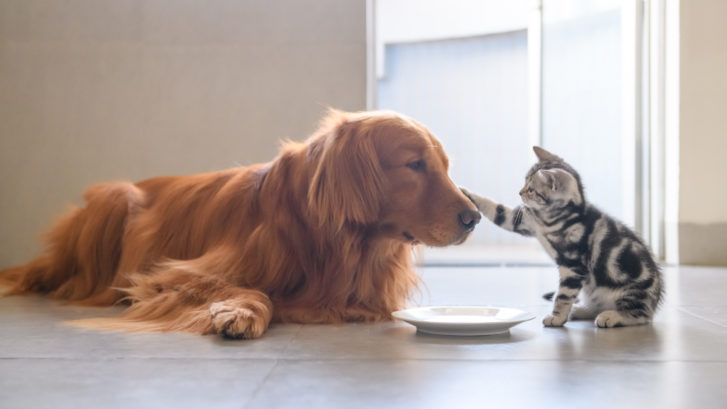Coping with Pet Grief
Our concierge family practice doctors in Jupiter have heard it more than once: “I don’t understand it. I’m grieving more for my pet than I did when my parent died.”
That statement may be shocking to some, but research has shown this reaction is not uncommon. This may be due to a number of reasons.
Not ‘just an animal’
People who have never had pets, or who haven’t shared a close relationship with them, may not understand the deep bond that can exist between a human and their companion animals. They may minimize or even dismiss the grief that can accompany the death of a pet.
Pet owners may grieve more for their animals than humans in their lives because our relationship with our pets may be more uncomplicated than those we share with humans. They offer unconditional love, and let us offer that to them. In addition, we see our animals every day, whereas parents, siblings, and friends may not be as physically close to us.
As with the loss of humans in our lives, we also feel grief when a pet dies because, as anyone who has spent time around an animal knows, each of them possesses a unique personality, so we miss that “person” as we would any human individual we’ve come to know and love.
Finally, there’s the fact that our animals totally rely on us to feed and care for them, offering a kind of normalcy to every day, similar to the way infant children are dependent on their parents for constant care.
Guilt often involved
This dependent relationship also complicates the loss, because pet owners may feel unneeded after an animal dies, or—quite commonly—feel they’re somehow responsible for the death.
“If only I’d taken him to the vet sooner.” “Why didn’t I close the gate so she didn’t get into the road?” “I should have had him euthanized sooner/later” is an especially common reaction. These natural feelings add to the grief, and may make it more difficult to cope with.
When guilt rears its ugly head, it’s best to remember you did the best you could for the animal you love given the information you had at the time. If the pet died through a preventable accident, you need to forgive yourself and remember it wasn’t deliberate. Also, try to focus on the good life you gave him/her.
How to cope
- Jettison any expectations that you will “get over” your pet’s death. With any loss, we don’t “get over” it; we eventually learn to live with the new reality and incorporate it into our daily lives. And never set a timetable for when you should start feeling better. Grief is different for every person, and depends on many factors, including your relationship with the animal, your social network, and other things going on in your life.
- Try to find at least one person you can talk to, not only about your grief, but about what made that particular animal special. If no one in your life offers this safe place, there are numerous online and in-person support groups that can provide this service. Your veterinarian likely knows of support groups in your area.
- Memorialize your pet. Hold a funeral or memorial service; create a photo album; write down memories; plant a tree. If you were present for the death of your pet, you may become “stuck” on those last moments. Focusing on the entirety of the pet’s life can help you put those final memories in perspective.
- Take care of yourself. Grief is exhausting. If the pet was ill for a long time, by the time he or she died, you were already worn out from the worry and medical care you gave the animal. Try to eat a healthy diet, get plenty of sleep, and at least take walks if you’re not yet up for strenuous exercise. You need to support your body as it recovers from the difficult work of mourning.
Finally, check with us if your grief interferes with your life, you feel that these steps aren’t helping, or you have thoughts of suicide. We can help.

